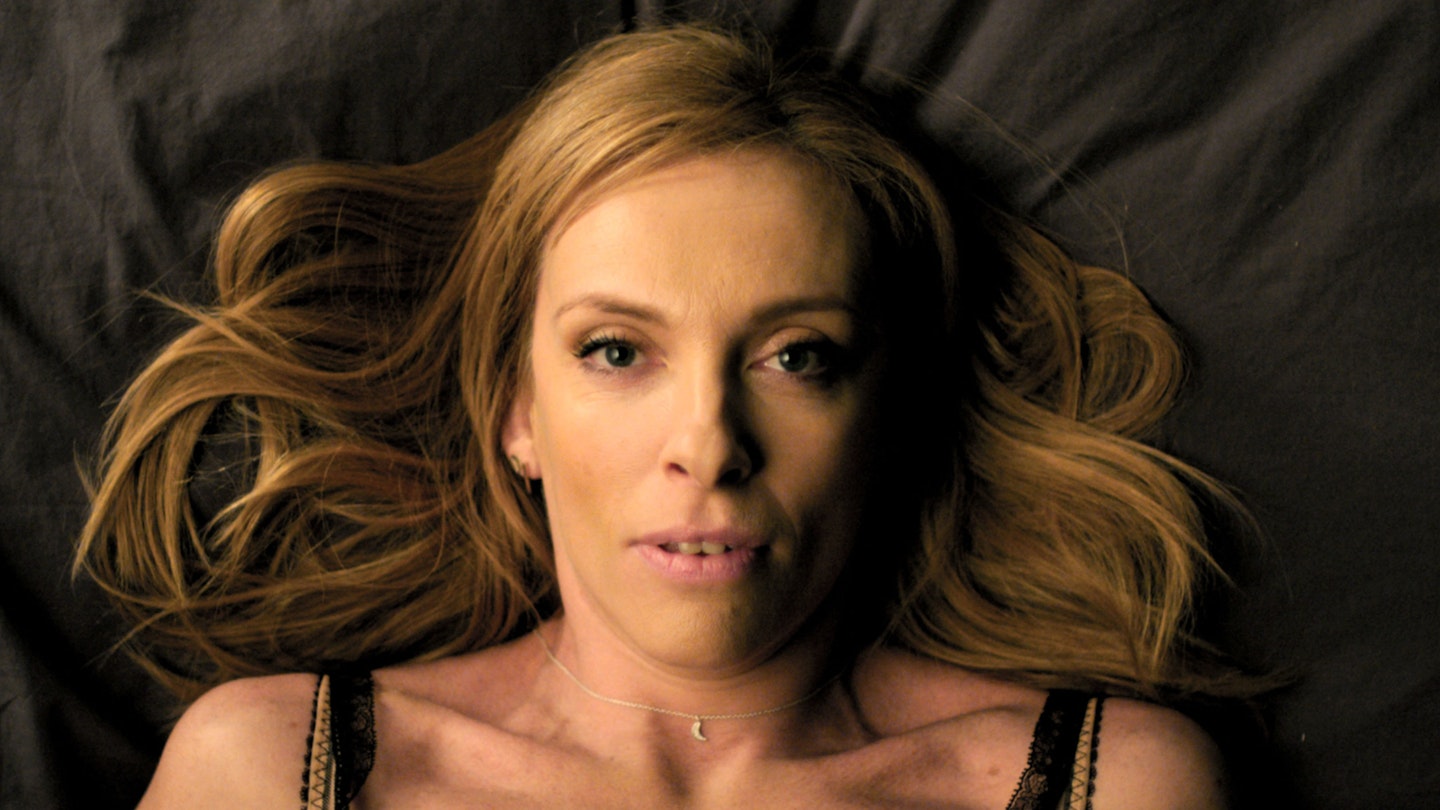Thanks to its frank, honest approach to female sexuality, Wanderlust, the new series landing on our screens next week, has already prompted a flurry of headlines branding it the BBC’s ‘most controversial’ and ‘most explicit’ drama to date. When Toni Collette, who stars as Joy, a therapist struggling to keep the spark alive in her marriage, said she was ‘happy’ to ‘take the accolade’ of being ‘the first woman to have an orgasm on the BBC,’ it raised eyebrows even further. ‘To be a middle-aged woman, to be in a long-term relationship and to be alive, dealing with a lot of things – it’s tough,’ she said. ‘Certainly a middle-aged woman’s sense of self-esteem, of sexuality, is not often talked about.’
While it’s hard to argue with that particular assertion, is there actually any truth to her main claim, that Wanderlust is the first BBC programme to depict a female orgasm? It’s 2018, after all: surely the broadcaster couldn't be that prudish? The BBC have said that they’re ‘unable to confirm’ Collette’s remark, re-stating that the show is ‘one of [their] most frank dramas about sex and relationships.’ Writing in The Guardian, Zoe Williams has briefly considered the BBC back catalogue to debunk the actress’s assertion, citing a sex scene from a 25-year-old adaptation of Lady Chatterley’s Lover as an older example then listing some more recent shows like last year's Apple Tree Yard and BBC Three's Fleabag.
In the star’s defence, it’s actually pretty difficult to identify this particular ‘first’ in screen history. In the film world, this honour goes to Austrian actress Hedy Lamarr in Ecstasy (1931), who later parlayed this notoriety to launch a successfully Hollywood career (and an unlikely sideline as an inventor, her research eventually providing the groundwork for Wi-Fi technology). On the small screen, though, there’s no definitive name or scene to cite. Perhaps that’s because TV is notoriously more reticent when it comes to depicting sex (or it was, at least, until Game of Thrones came along) or because TV producers tend to use familiar, cagey shorthand to ‘tastefully’ allude to orgasms: barely an episode of Sex and the City would go by without the obligatory curling of toes or widening of eyes.
With this in mind, we've trawled the archives to bring you a brief and non-exhaustive history of sex on the small screen, starting in the strait-laced 50s and culminating with this year's most talked-about shows...
Wanderlust begins on BBC One at 9pm on 4th September
history of sex on tv - Grazia
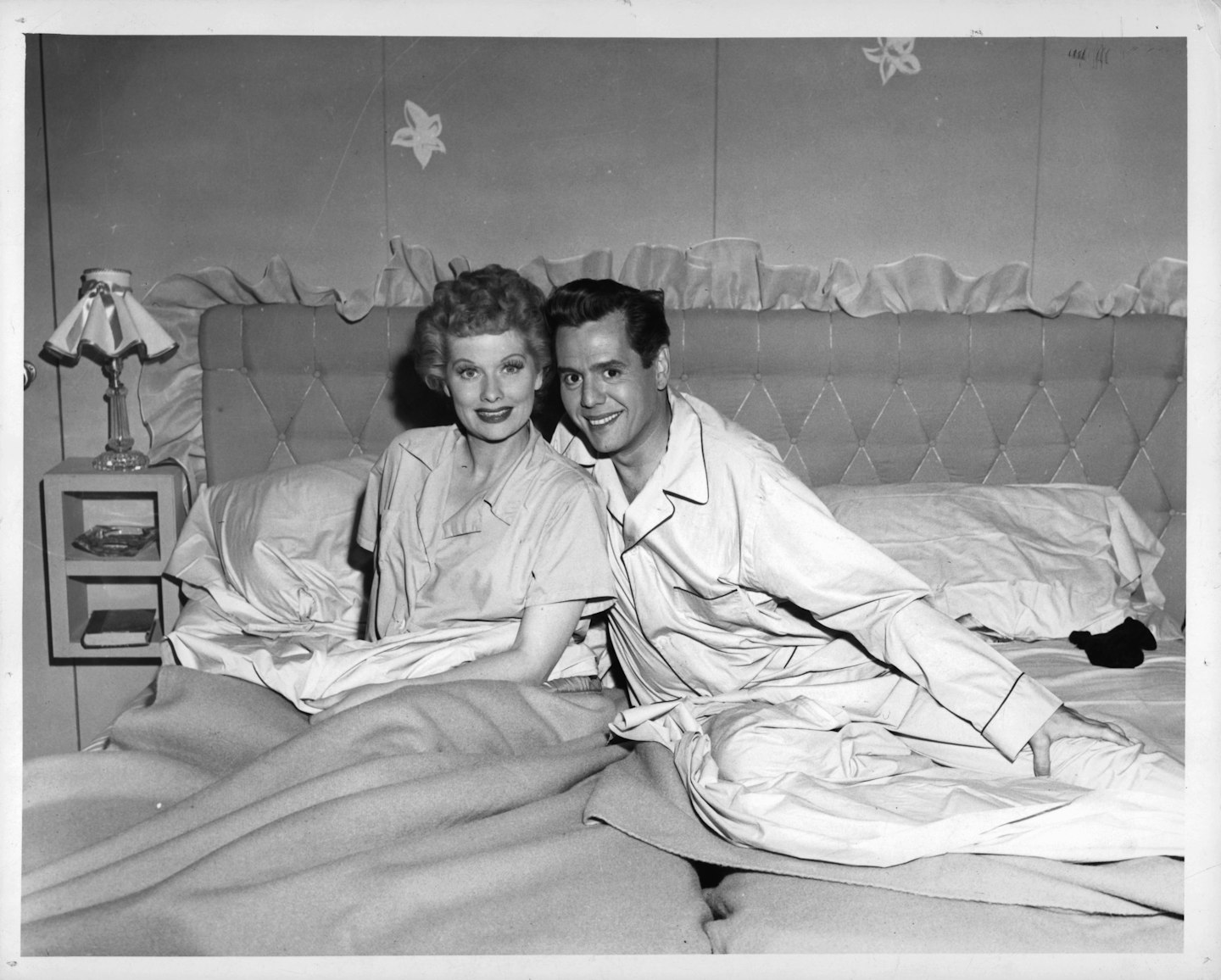 1 of 9
1 of 9I Love Lucy (CBS, 1951)
In the 1950s, TV censorship was so tight that on-screen couples couldn't even be pictured in bed together. On I Love Lucy, the lead characters Lucy (Lucille Ball) and Ricky (Desi Arnaz) would be shown lying alongside one another in two twin beds pushed together (despite their being a married couple in real life…) Plus, when Lucy was pregnant, she wasn't allowed to use that word, instead referring to being 'with child' or 'having a baby.'
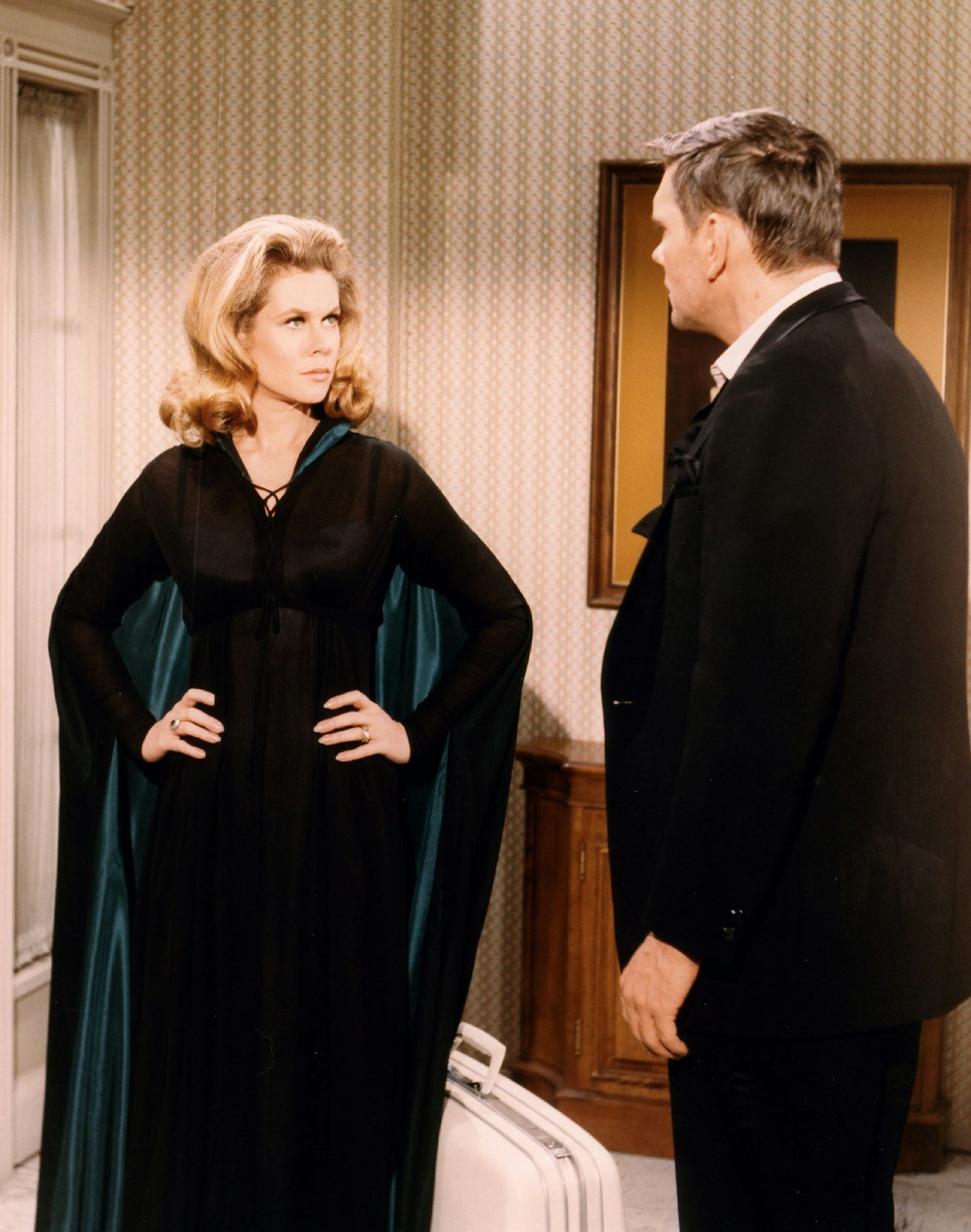 2 of 9
2 of 9Bewitched (ABC, 1964
Things relaxed (a little) in the '60s, when Bewitched's Elizabeth Montgomery and Dick York pulled off a double first: not only were their characters the first on-screen couple to be pictured sharing the same bed (shock), they were also the first pair of stars who weren't married in real life to be shown in the bedroom together. Apparently, it made sense, because Elizabeth's character was a witch. The mind boggles.
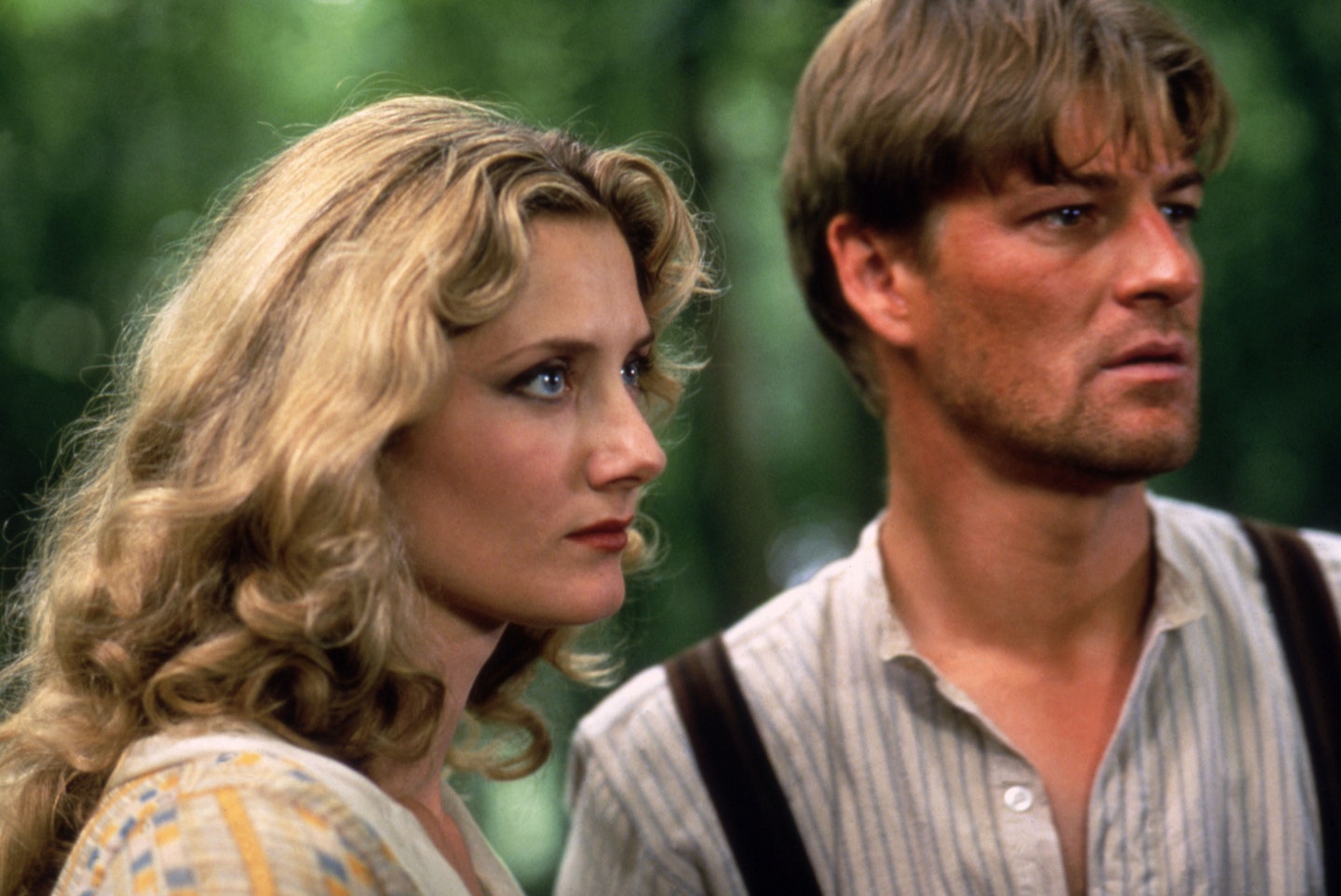 3 of 9
3 of 9Lady Chatterley's Lover (BBC, 1991)
DH Lawrence's novel was famously banned for obscenity upon its release in the 1960s, and it seems that the BBC's 1993 adaptation, starring Joely Richardson as the titular character and Sean Bean as groundskeeper Mellors, similarly caused a stir with its graphic sex scenes.
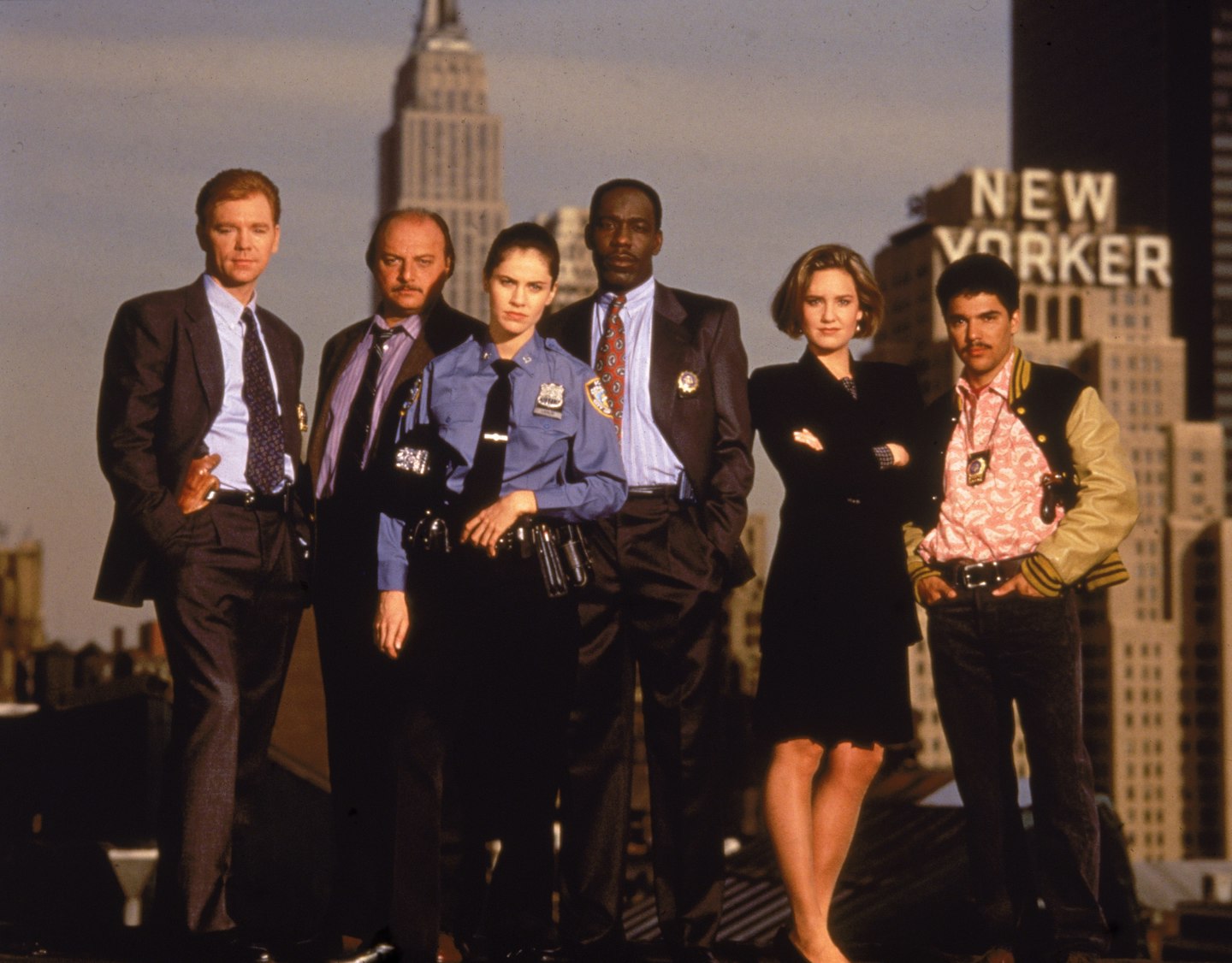 4 of 9
4 of 9NYPD Blue (ABC, 1993)
Don't let this very tame promo shot deceive you: NYPD Blue courted major controversy in the early '90s. US channel ABC's police drama was met with outrage before it even aired on TV: learning that the show would merit an 'R' rating with its depictions of sex, nudity and violence, the American Family Association paid to take out full page ads denouncing it in some of the country's biggest newspapers. Eventually, some of ABC's affiliate channels refused to even show the pilot episode. This didn't appear to deter the show's producers, who continued to feature nudity from the back (which was very much frowned upon, and even prompted a fine from the Federal Communications Commission).
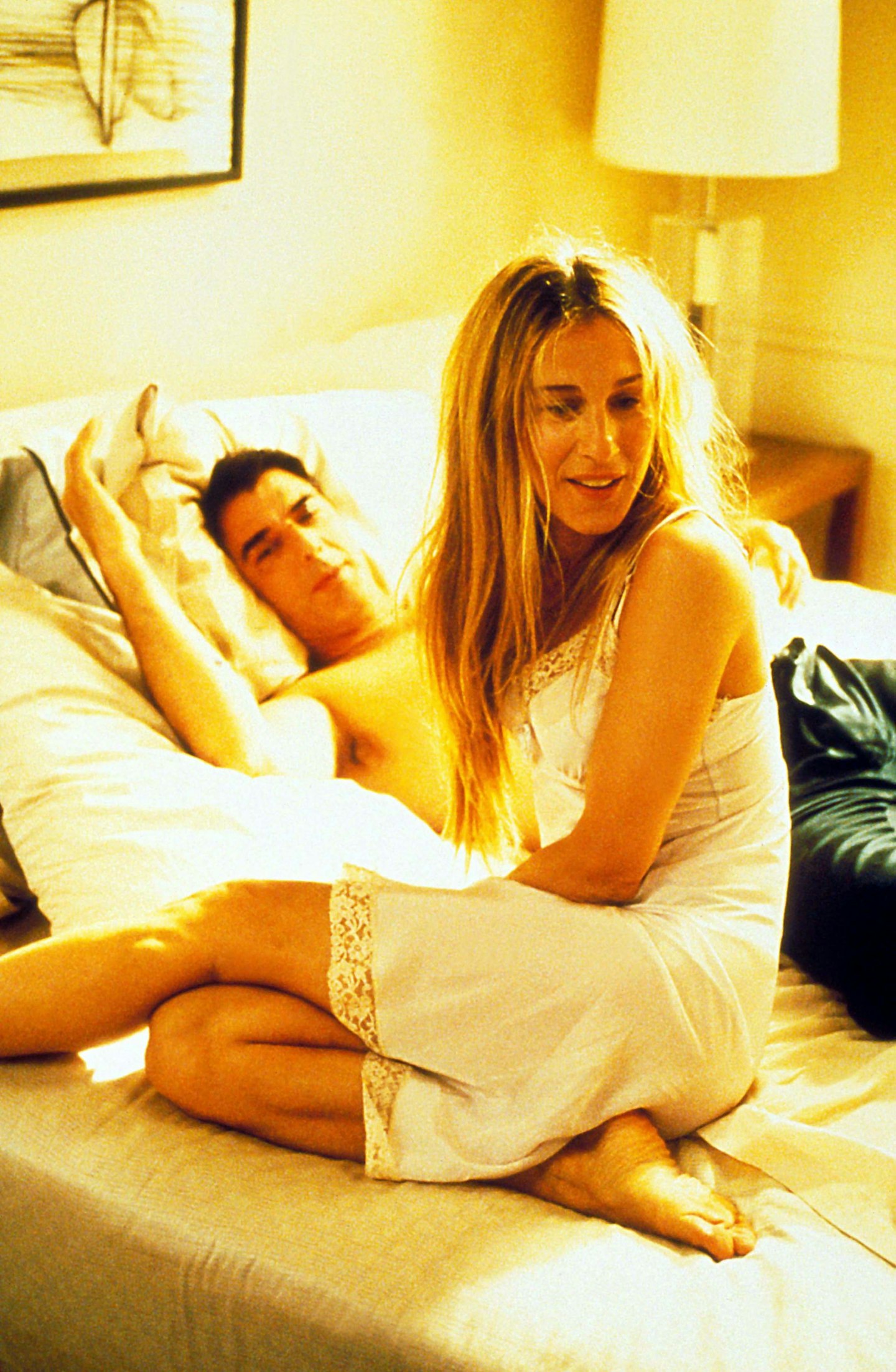 5 of 9
5 of 9Sex and the City (HBO, 1998)
You can't chart the history of sex on screen without stopping to consider the impact of Sex and the City. Airing on cable channel HBO, the show's writers were subject to fewer restrictions from America's Federal Communications Commission (similar to our own Ofcom). This paved the way for candid depictions of topics previously considered NSFT (not safe for TV?) and though it's certainly aged in the 20 years since its debut, it remains a groundbreaking show.
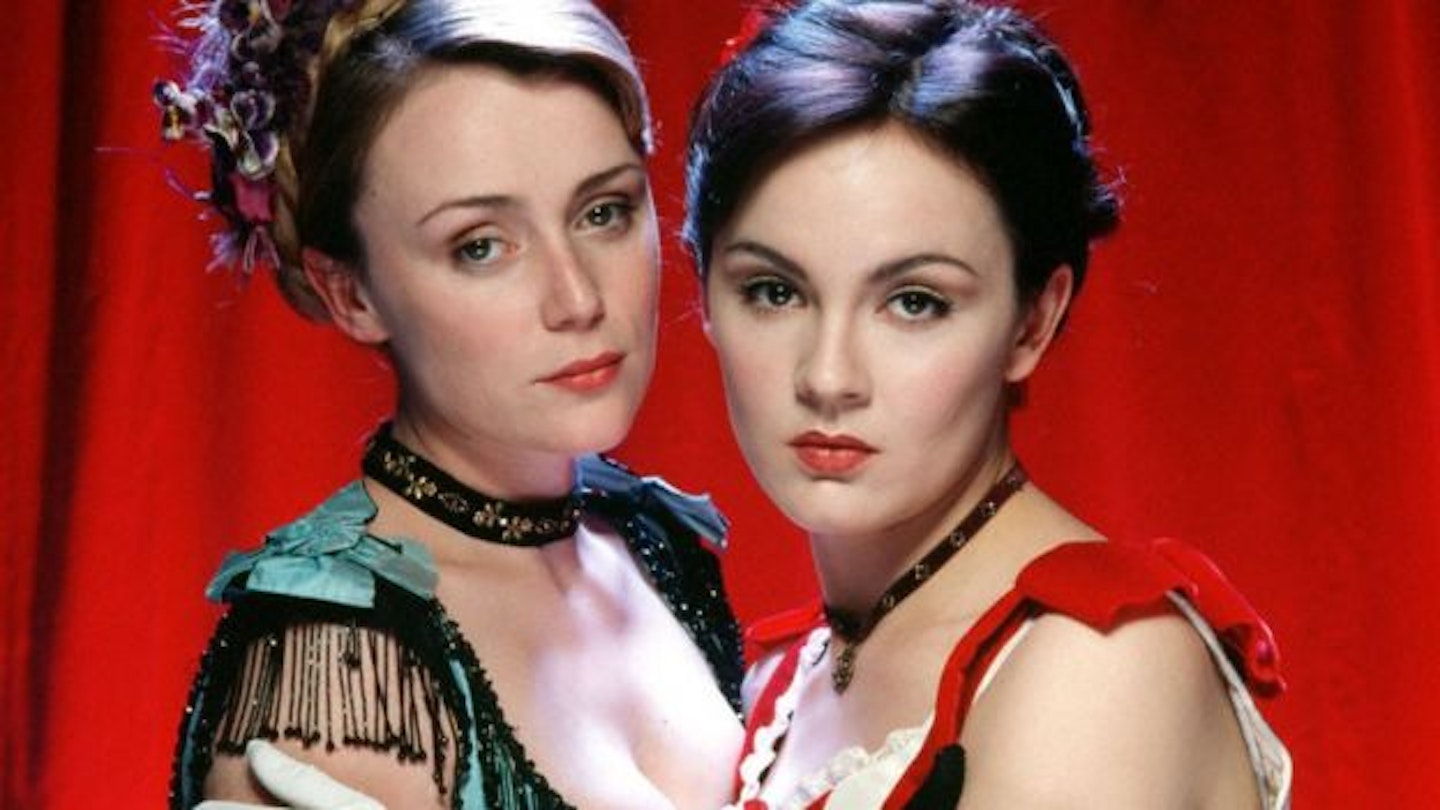 6 of 9
6 of 9Tipping The Velvet (BBC, 2002)
Tipping The Velvet, an adaptation of Sarah Waters' novel which featured Keeley Hawes as Kitty, a cross-dressing Victorian musical hall star, predictably elicited plenty of semi-salacious outrage from the usual corners (ie. The Daily Mail) for its lesbian sex scenes, which certainly featured more than one female orgasm (sorry, Toni).
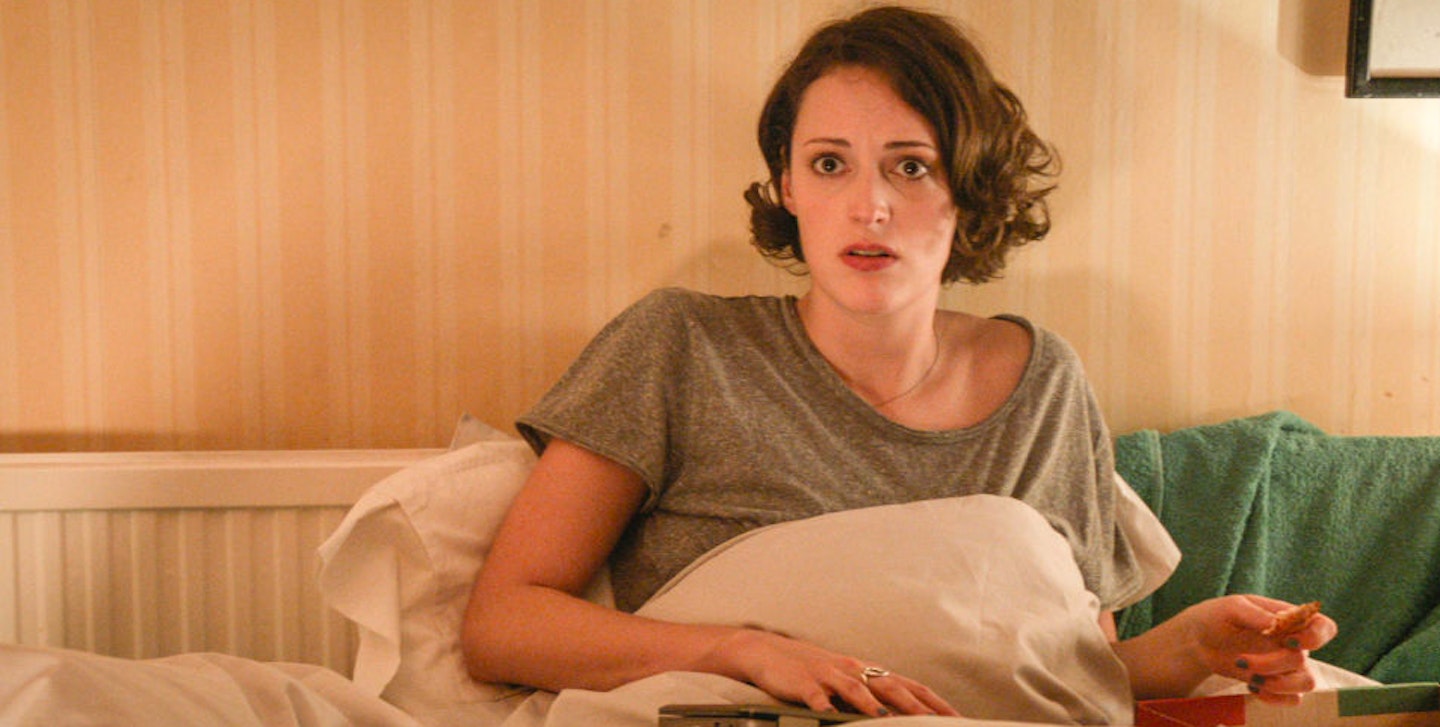 7 of 9
7 of 9Fleabag (BBC, 2016)
Nothing, it seems, is off limits in Phoebe Waller Bridge's BBC Three series Fleabag, which manages to tick off almost every TV taboo from masturbation to anal sex while also being very, very funny. A second season is coming in 2019.
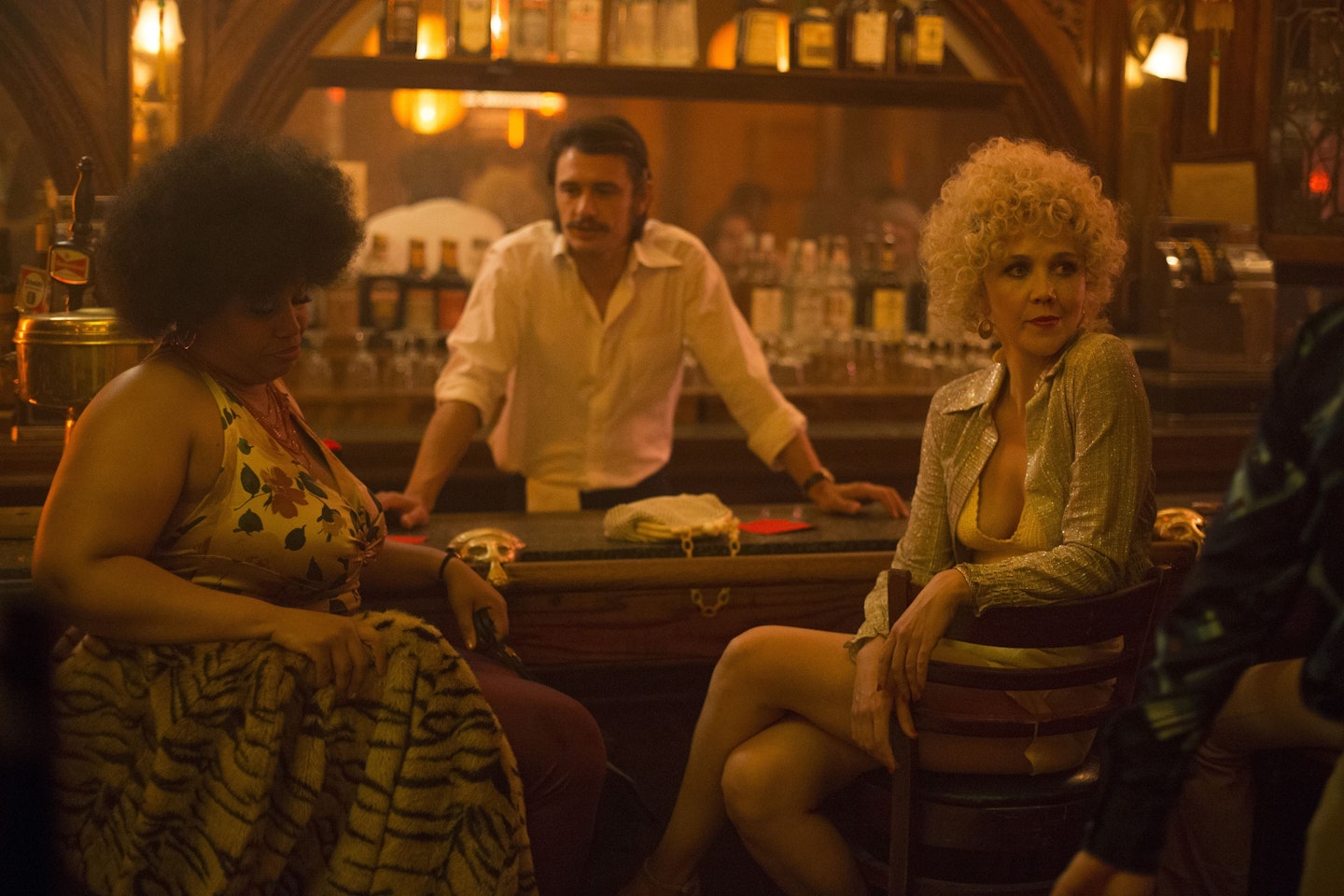 8 of 9
8 of 9The Deuce (HBO, 2017)
A show dealing with prostitution in the '70s could easily end up feeling uncomfortable and exploitative, but actress Maggie Gyllenhaal has revealed how she fought for a balance representation of female sexuality. 'In our show there is lots of prostitution, lots of transactional sex, lots of fake orgasms,' she explained to the Hollywood Reporter. 'I said to [showrunner] David Simon… "I think you need to see a real feminine orgasm in order to show the contrast and to show that these [others] are performative."' When this scene was cut, she sent 'a dissertation email' to the producer, explaining why it was such a necessary scene.
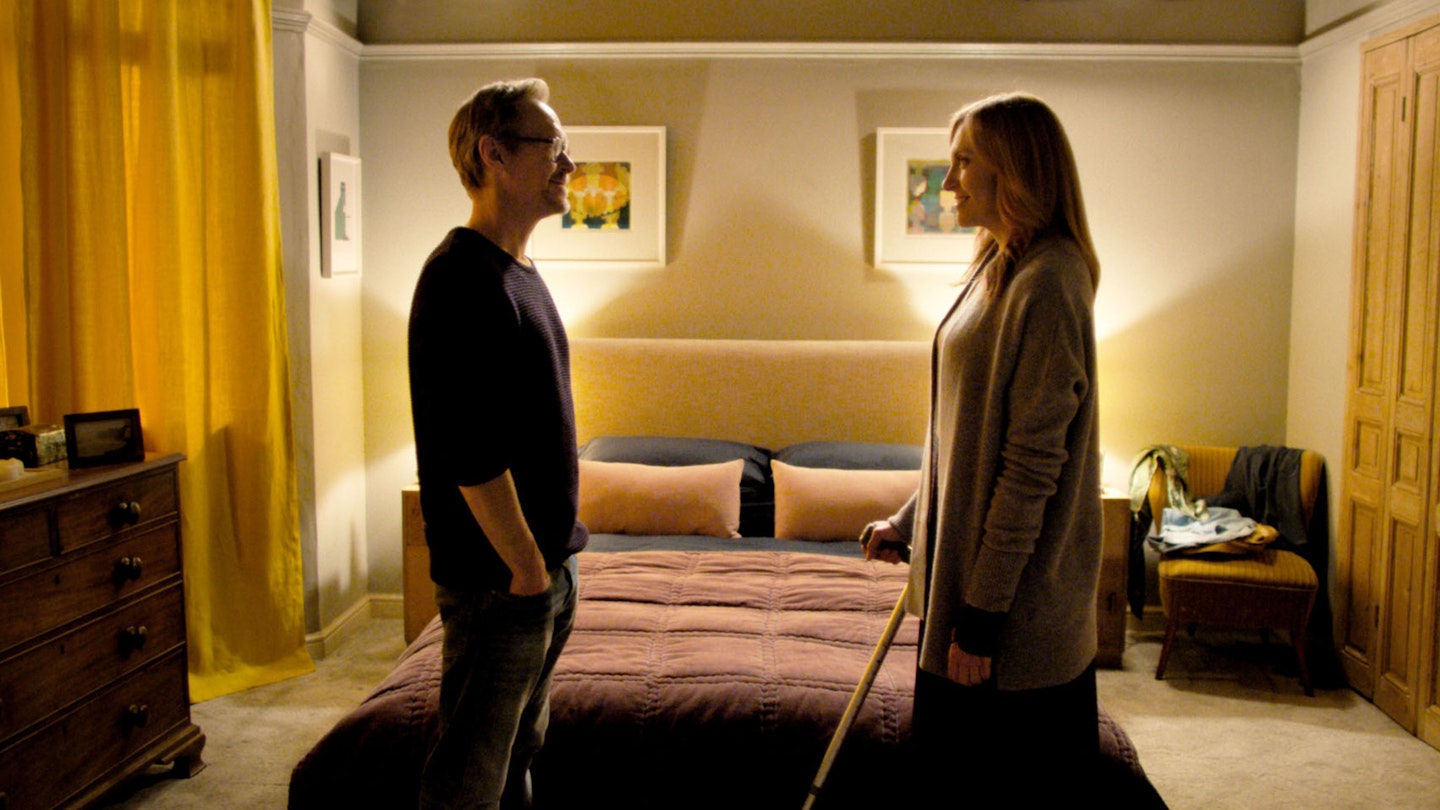 9 of 9
9 of 9Wanderlust (BBC, 2018)
Wanderlust, which begins on BBC One on 4th September at 9pm, has already been praised for its frank and open portrayal of sexuality, focusing on the experiences of Joy (Toni Collette), a 40-something woman struggling with the realities of a long-term relationship. While it might not actually present the first ever female orgasm on screen, Collette's assertion that 'a middle aged woman's [...] sexuality is not often talked about' certainly rings true.
